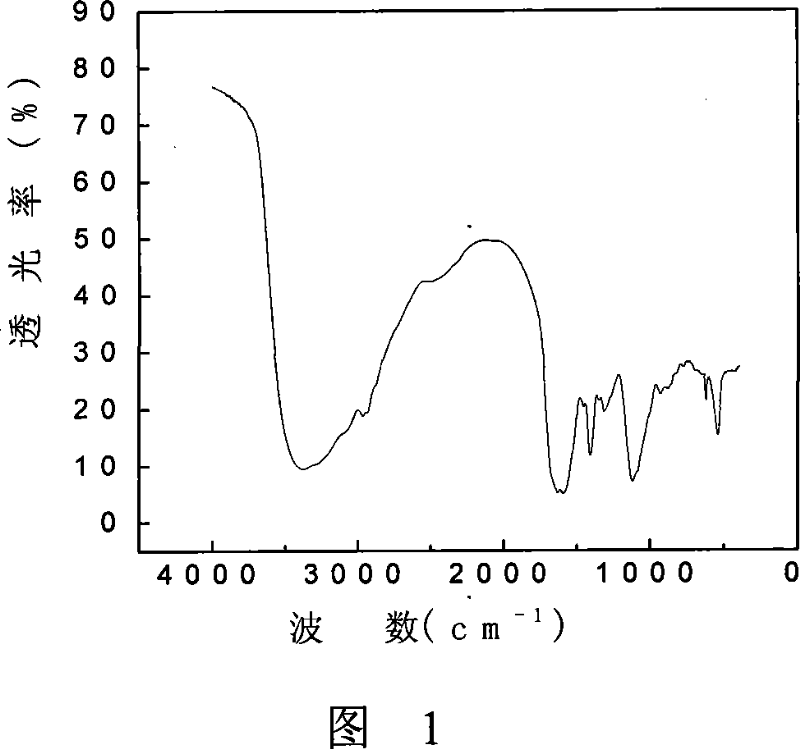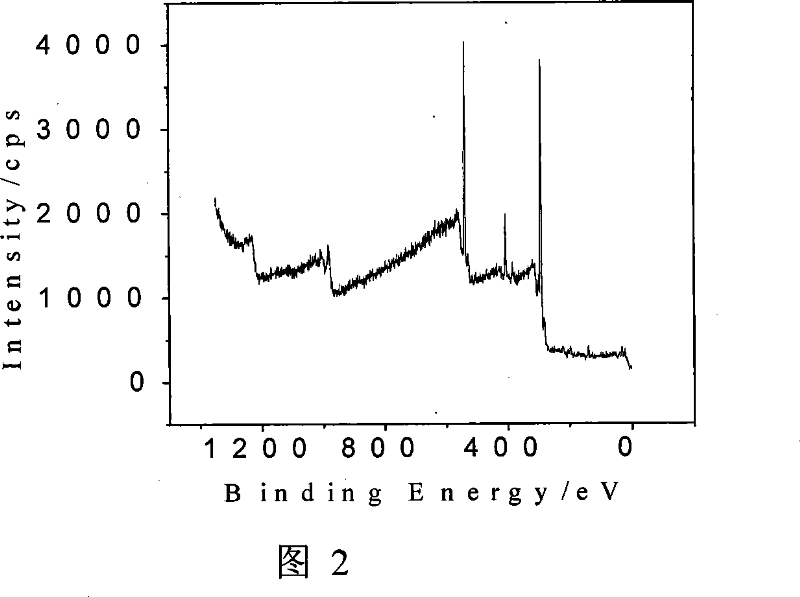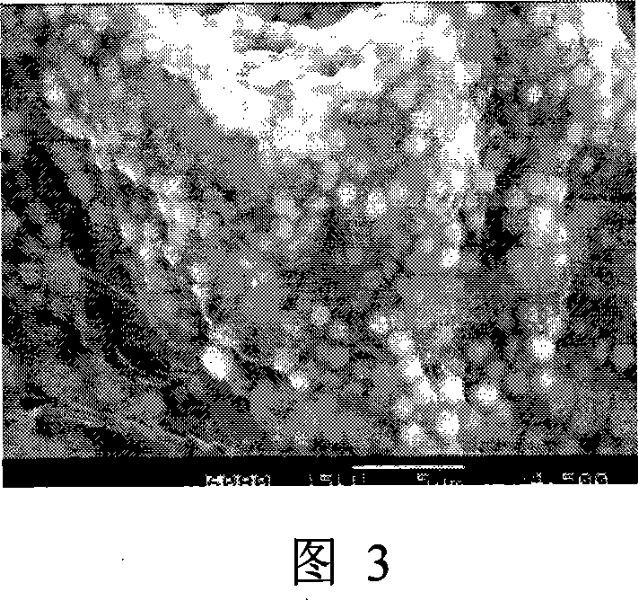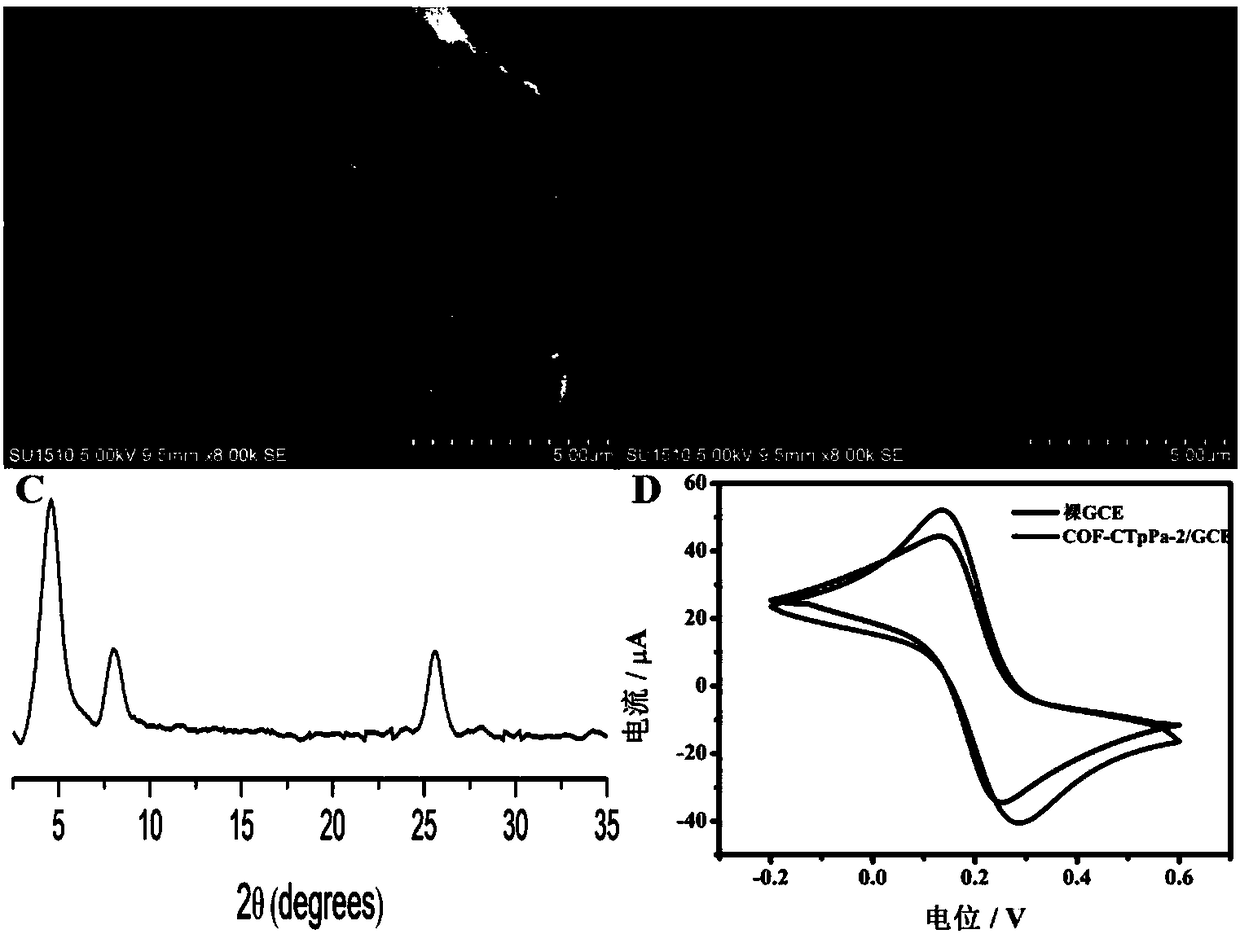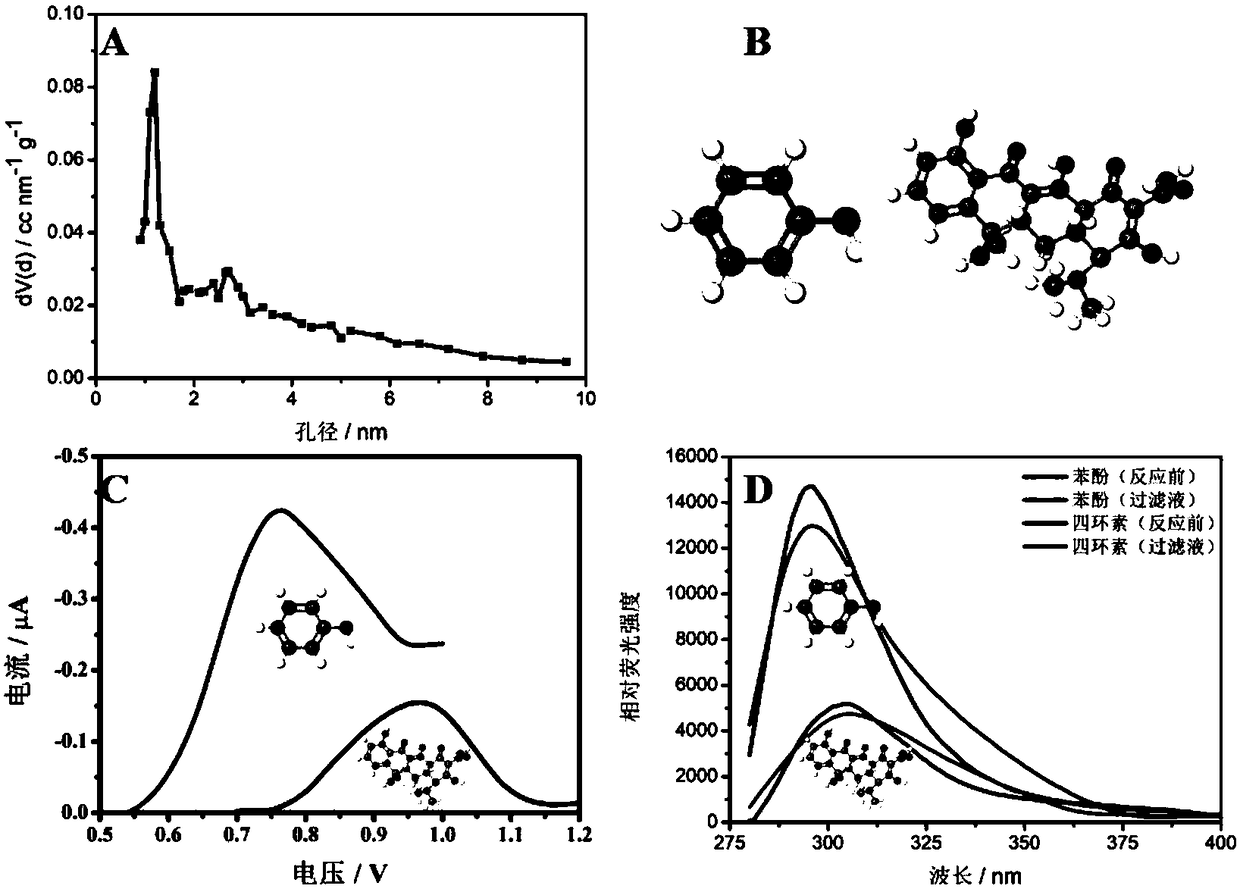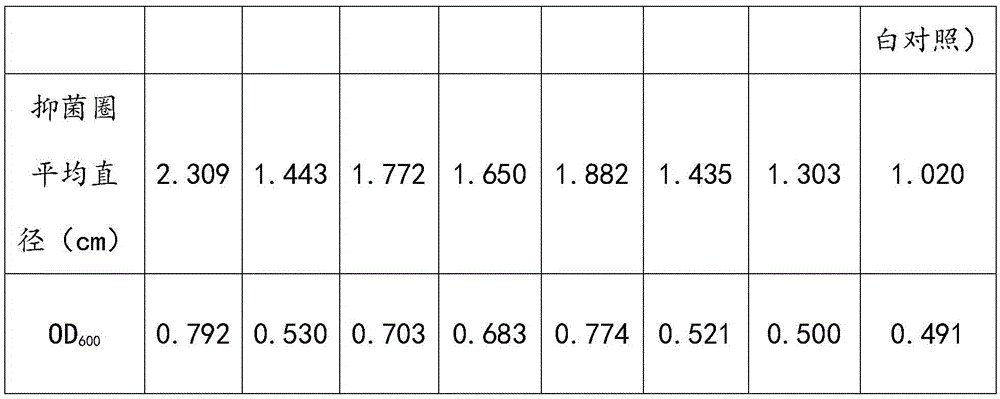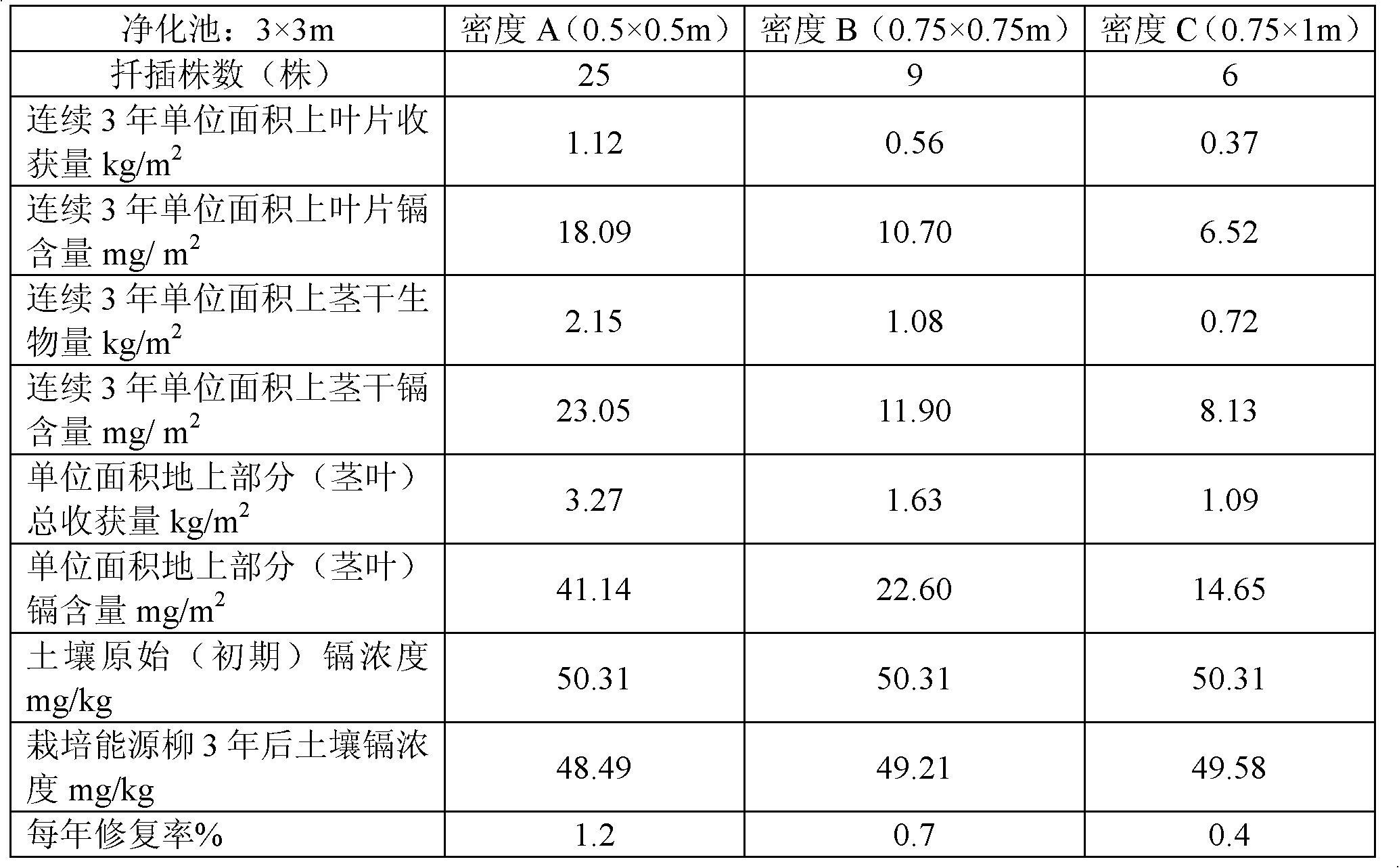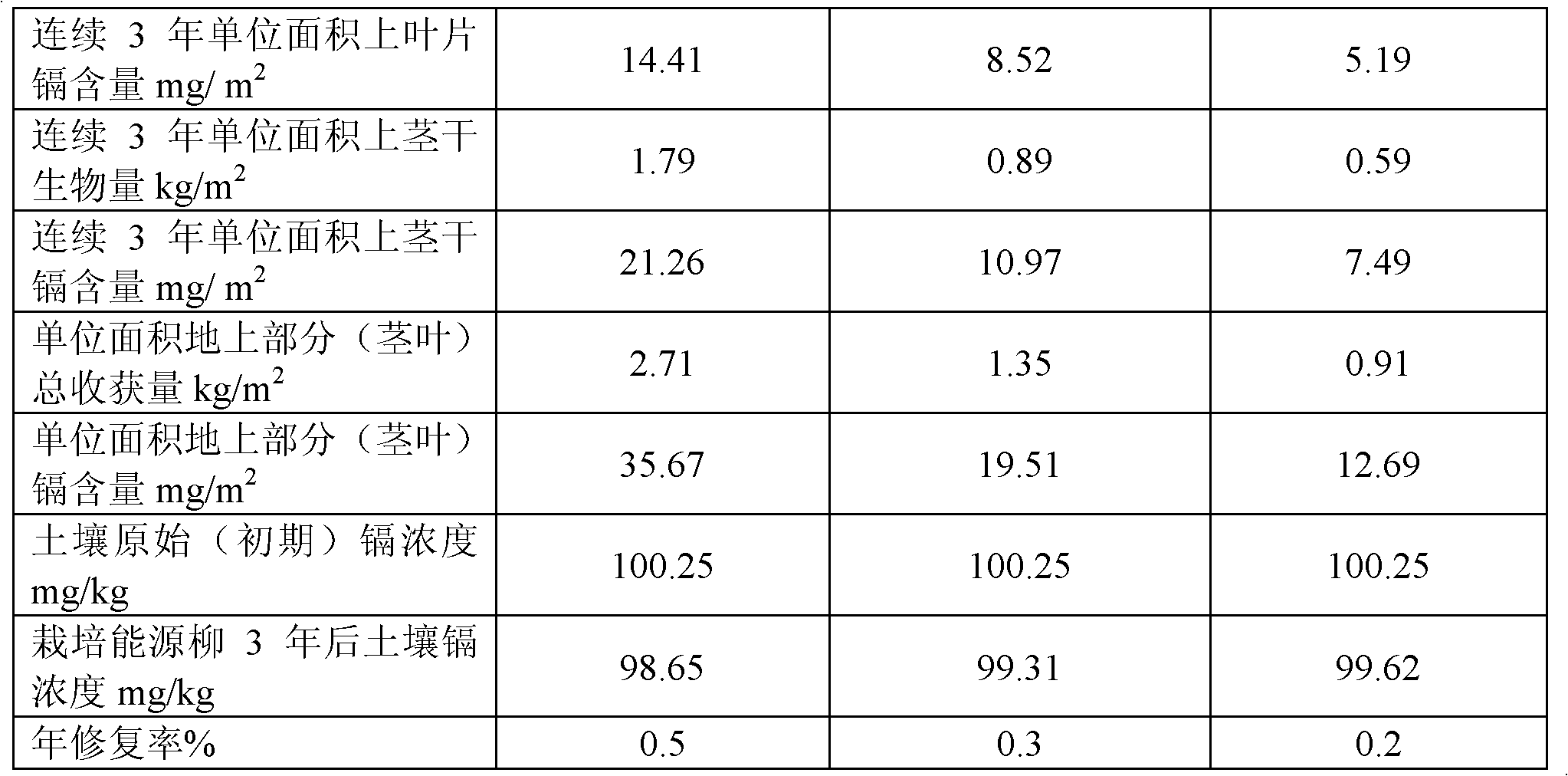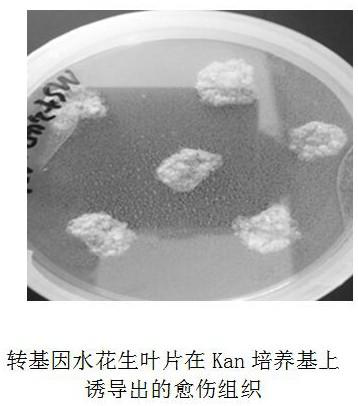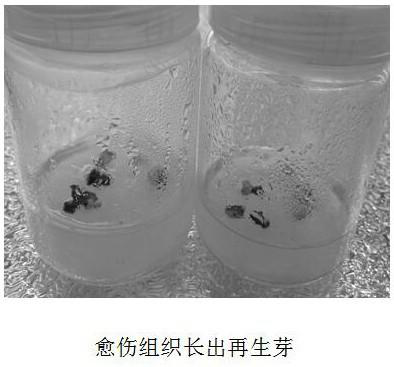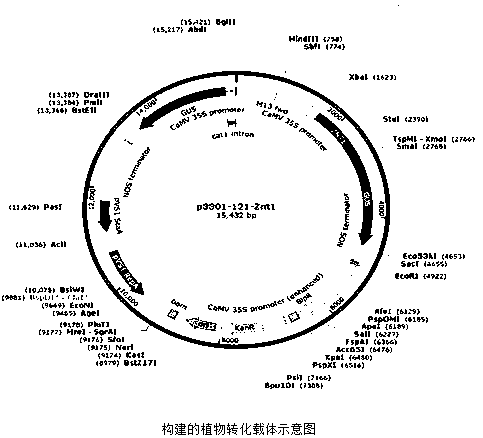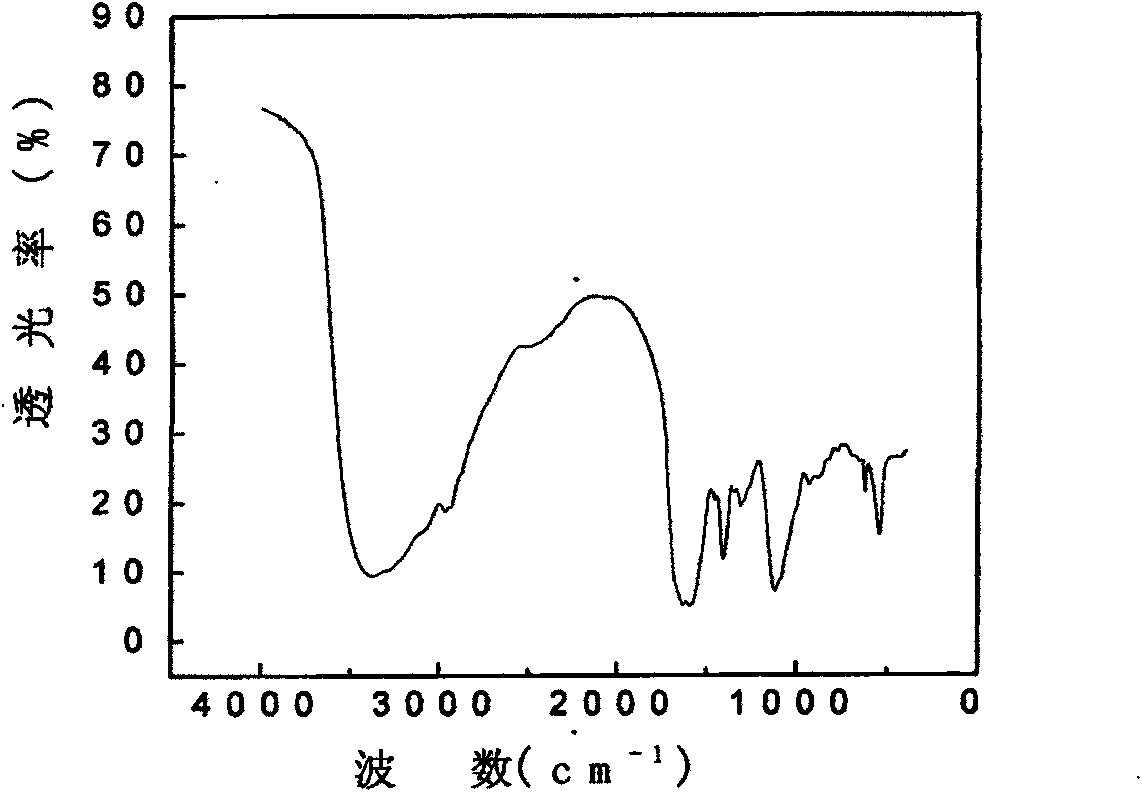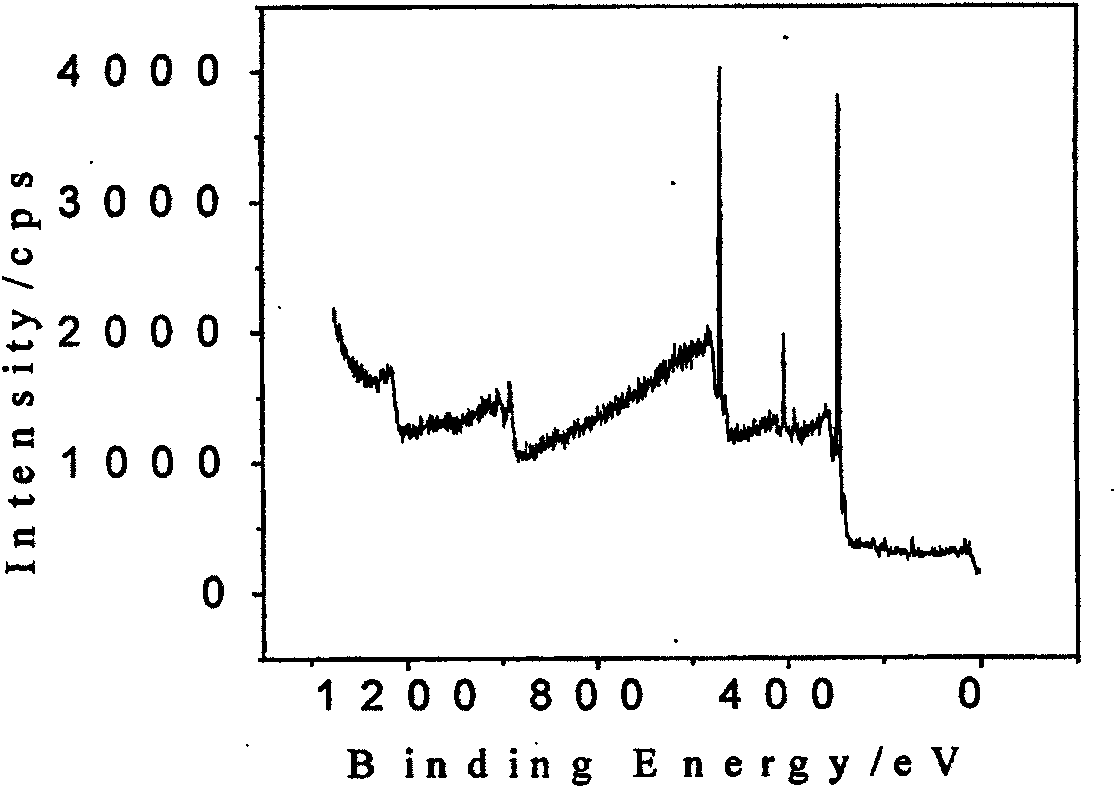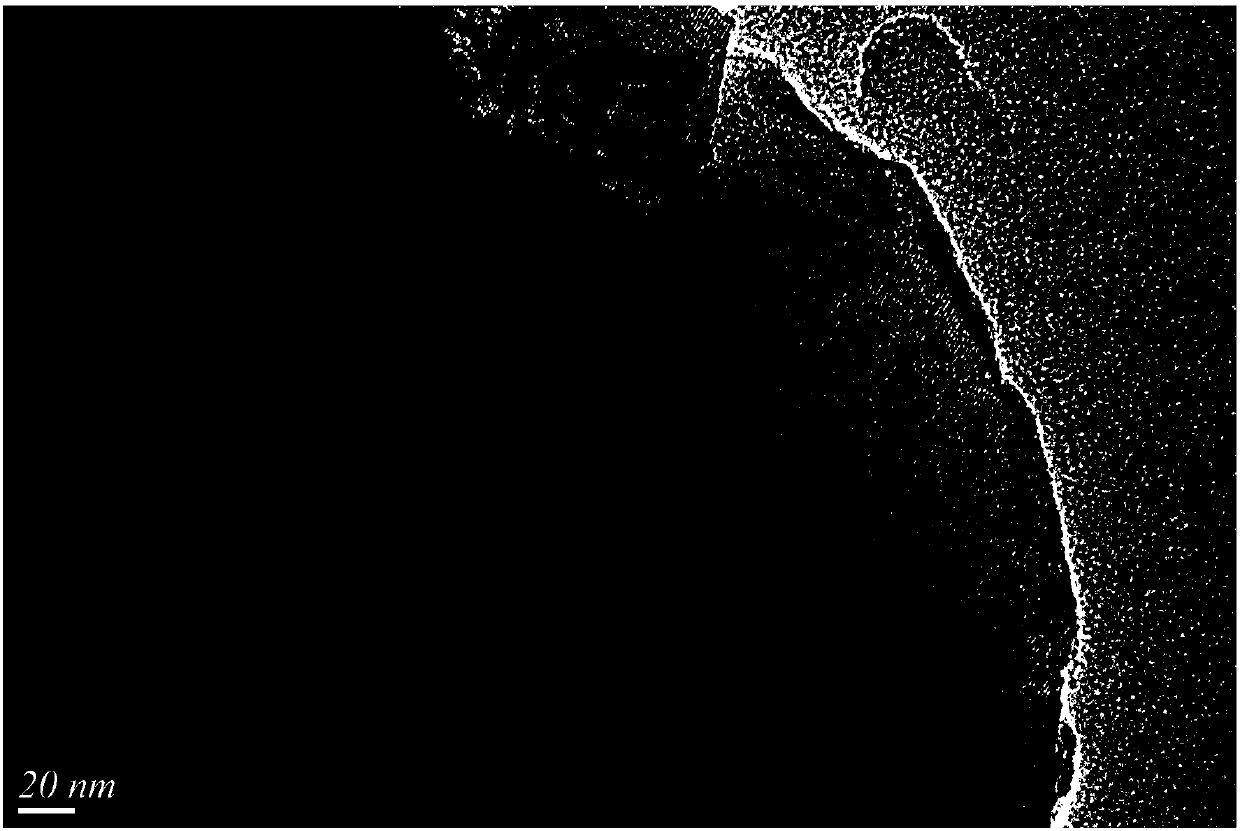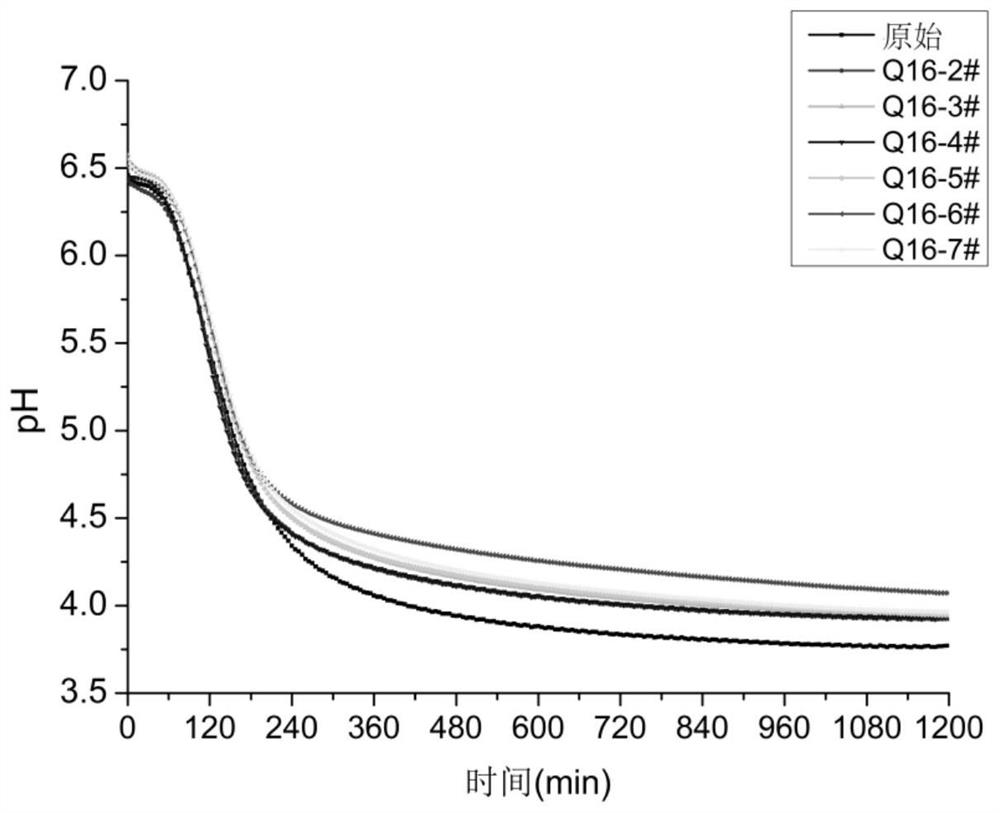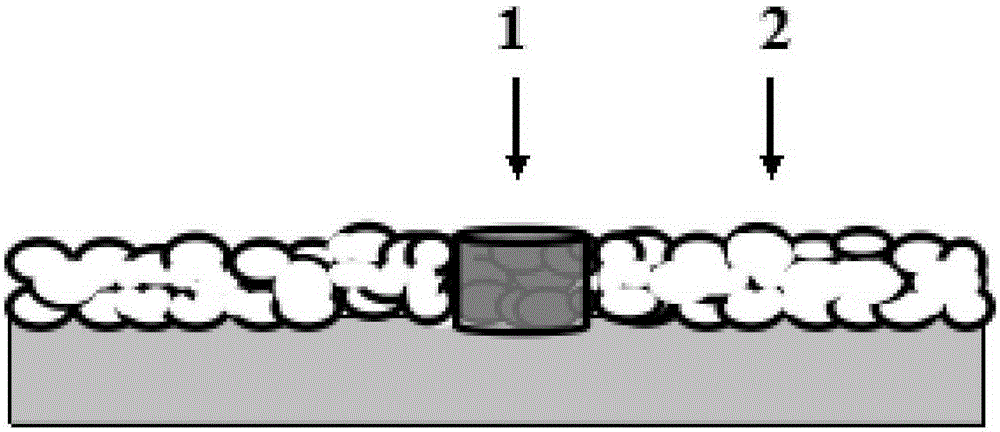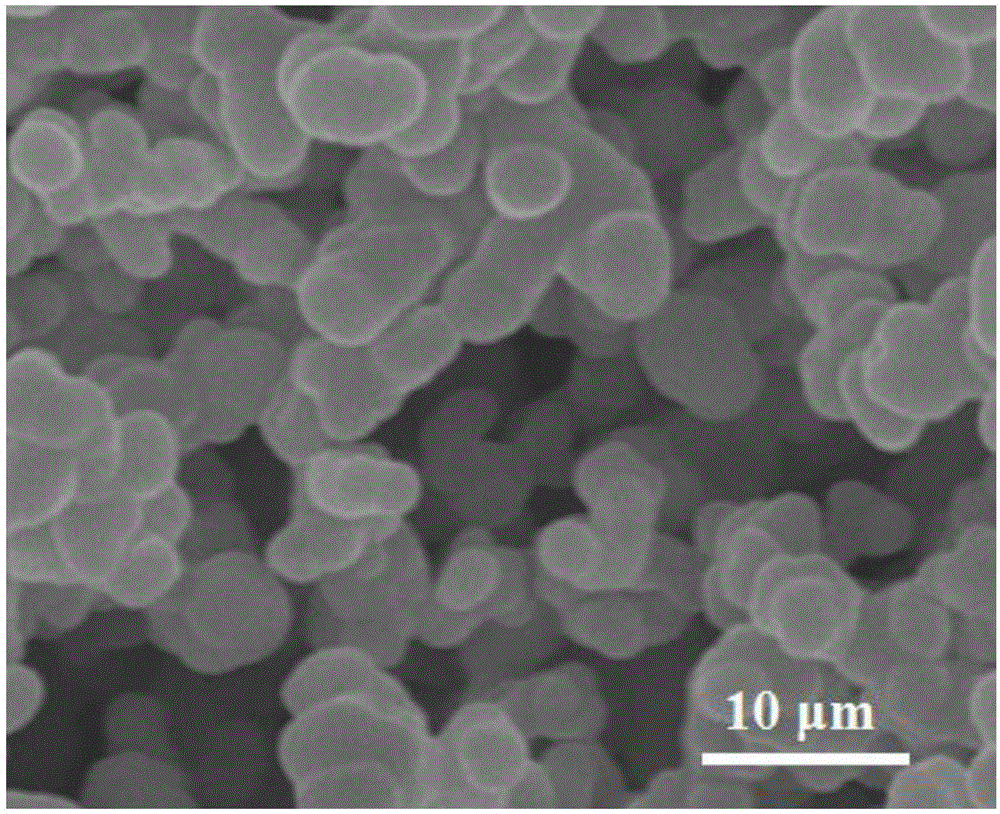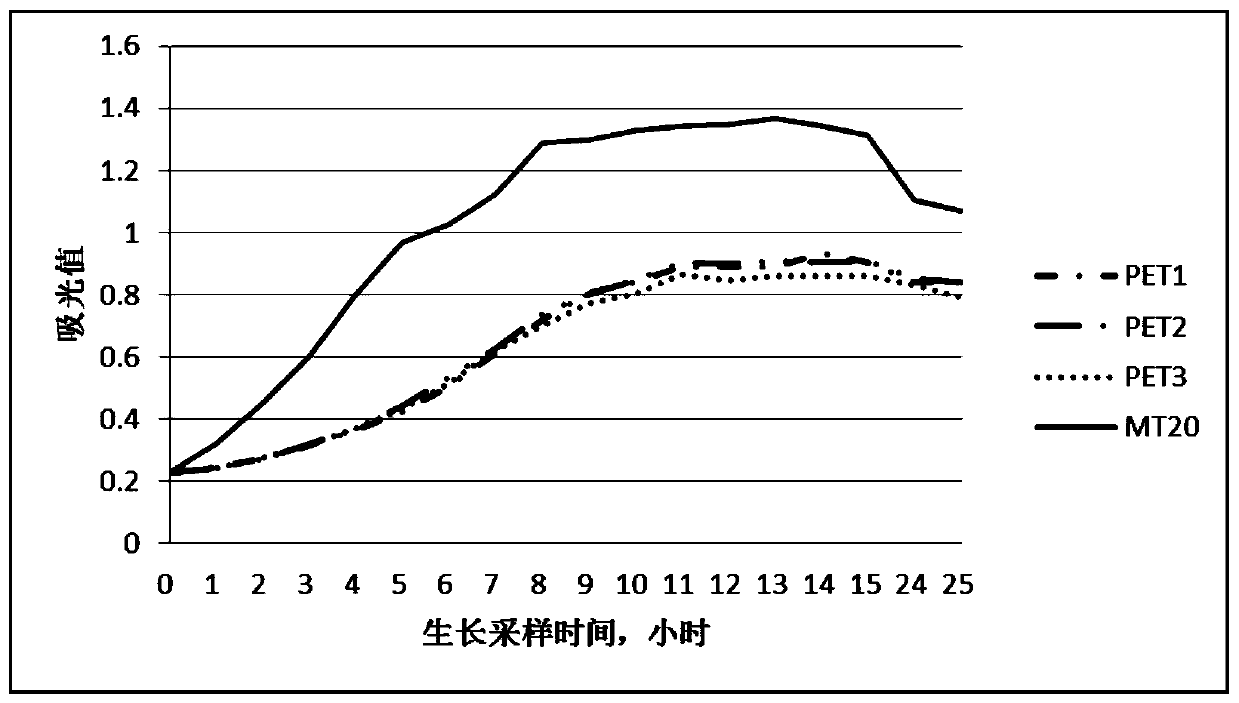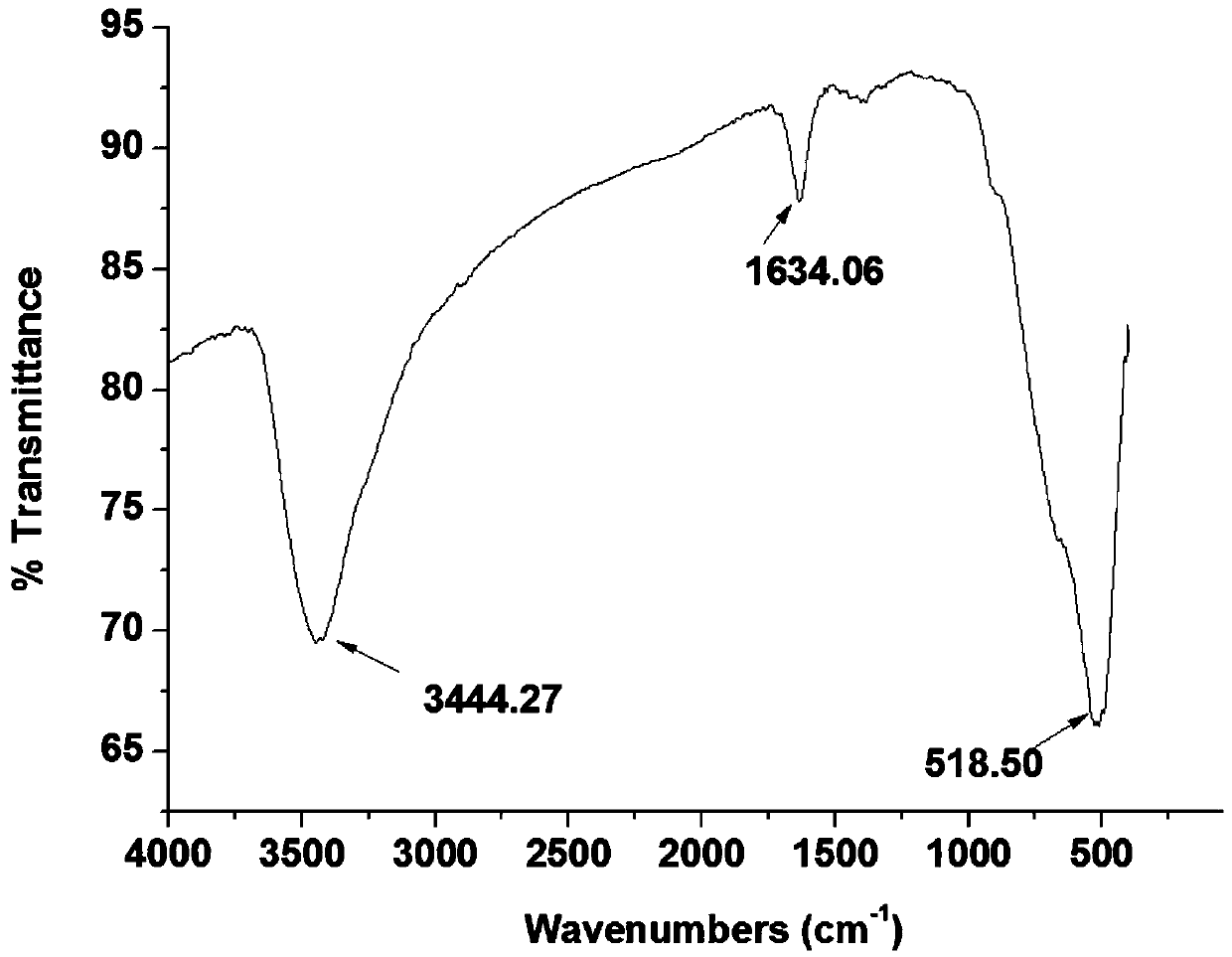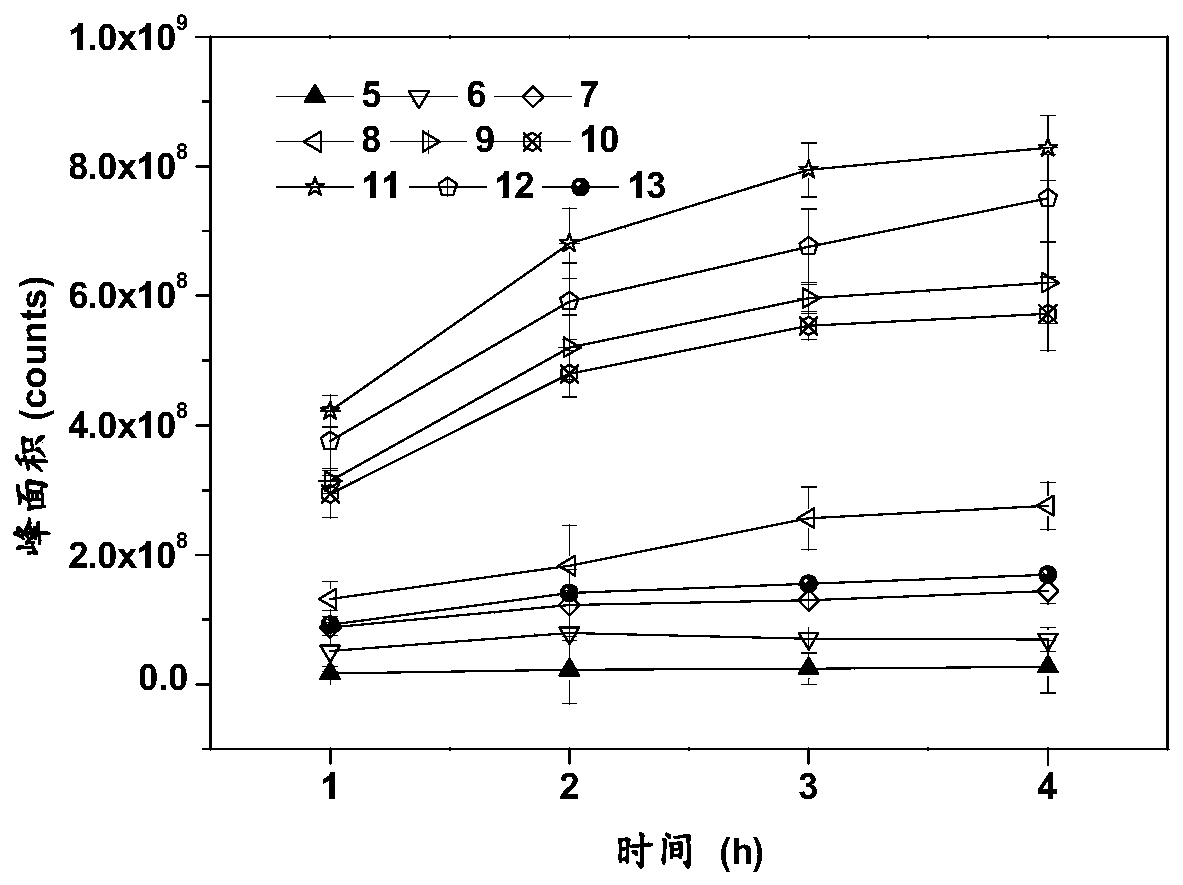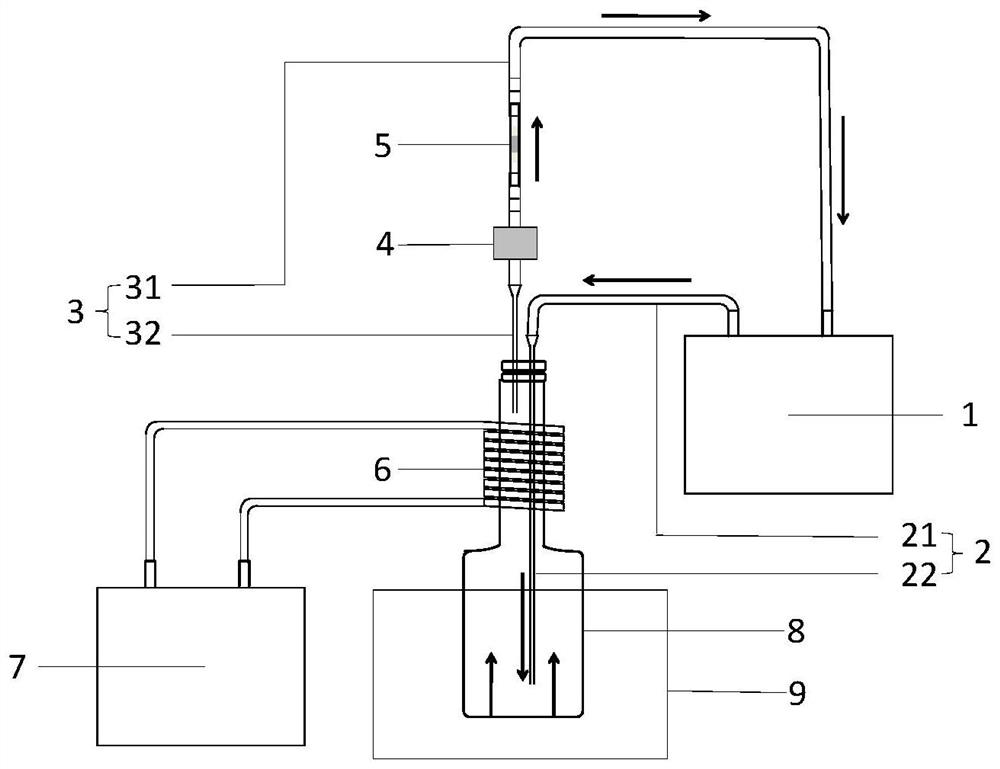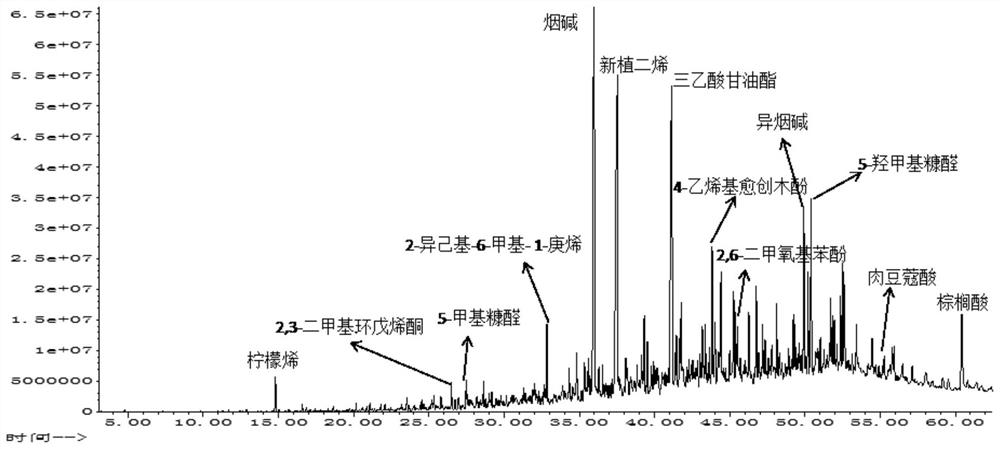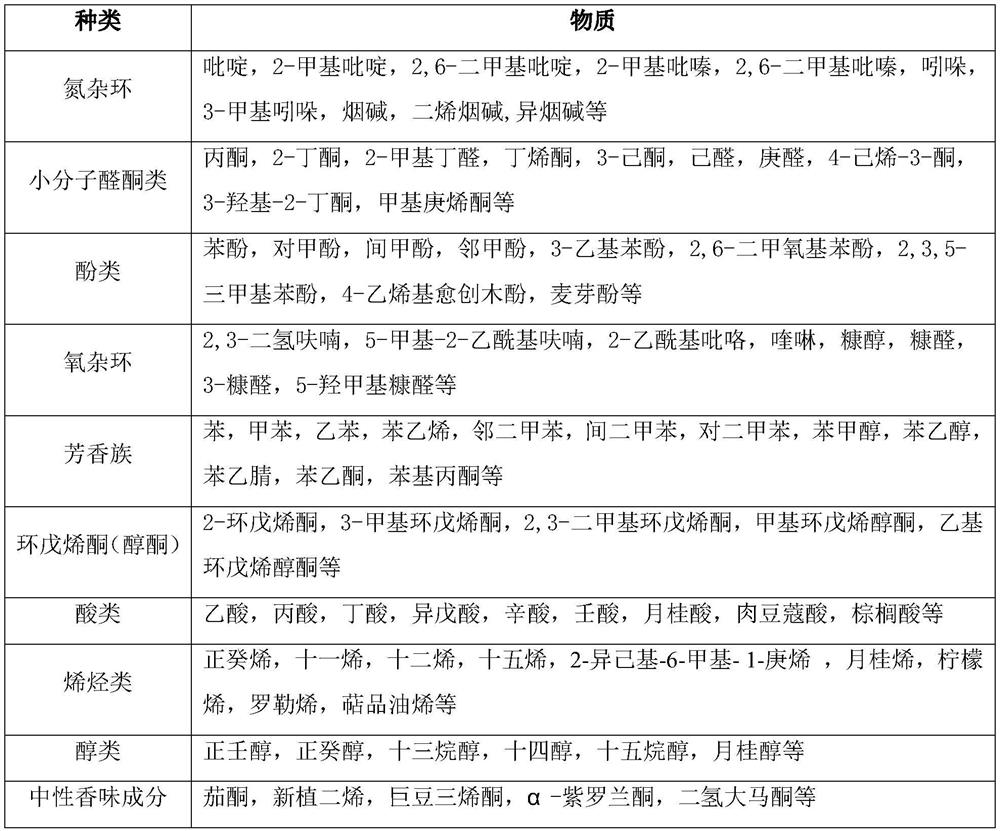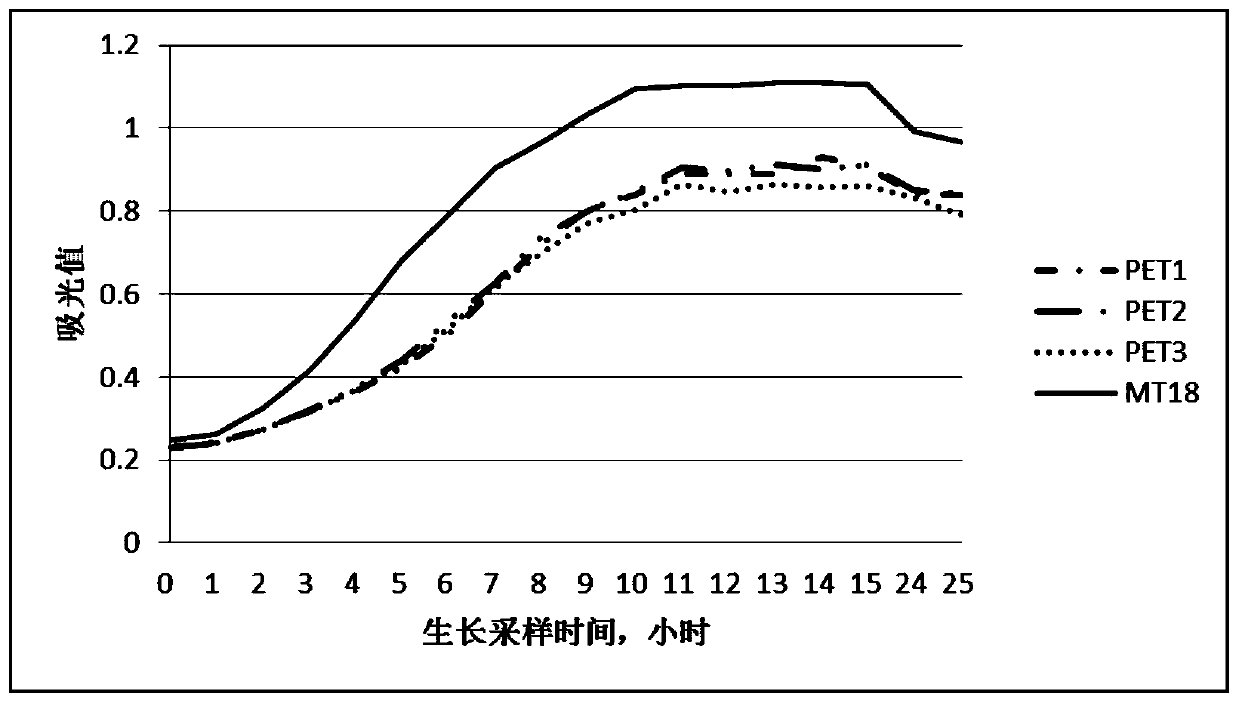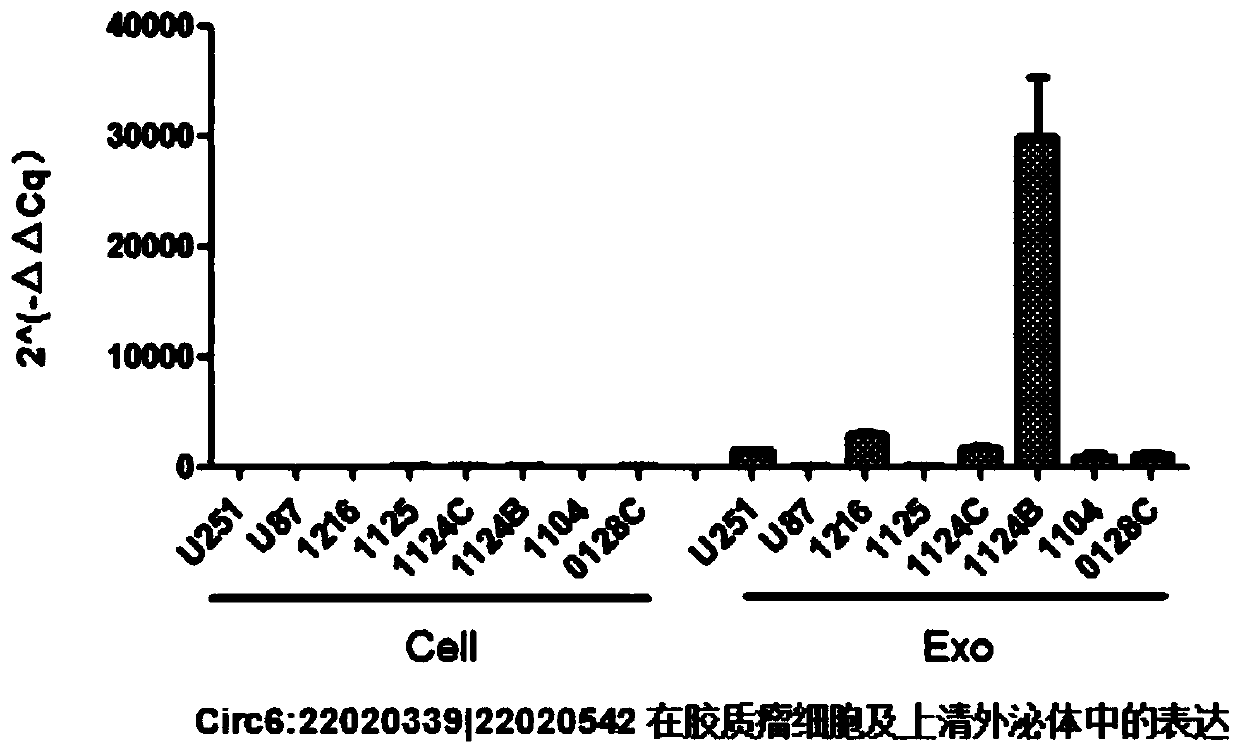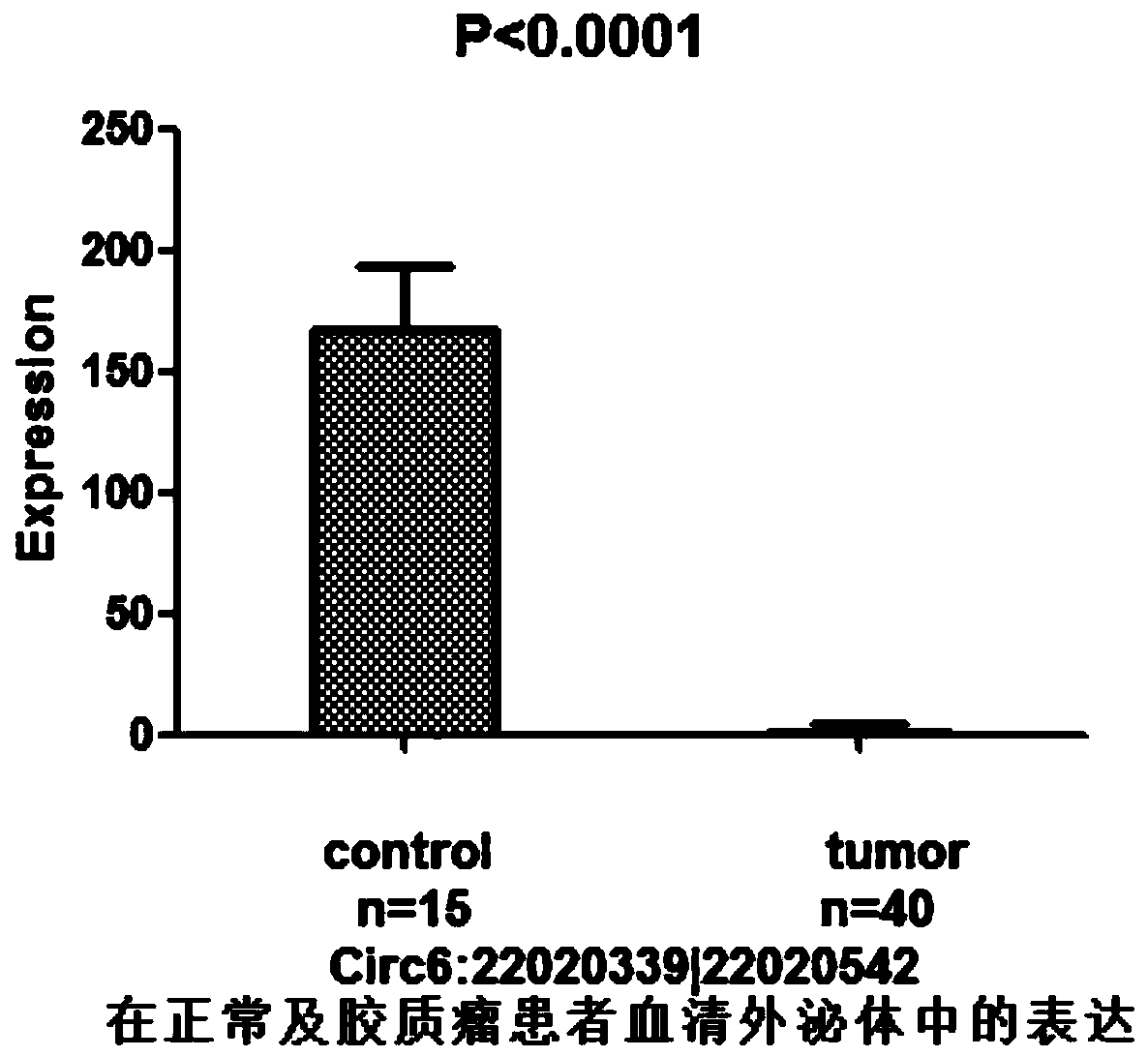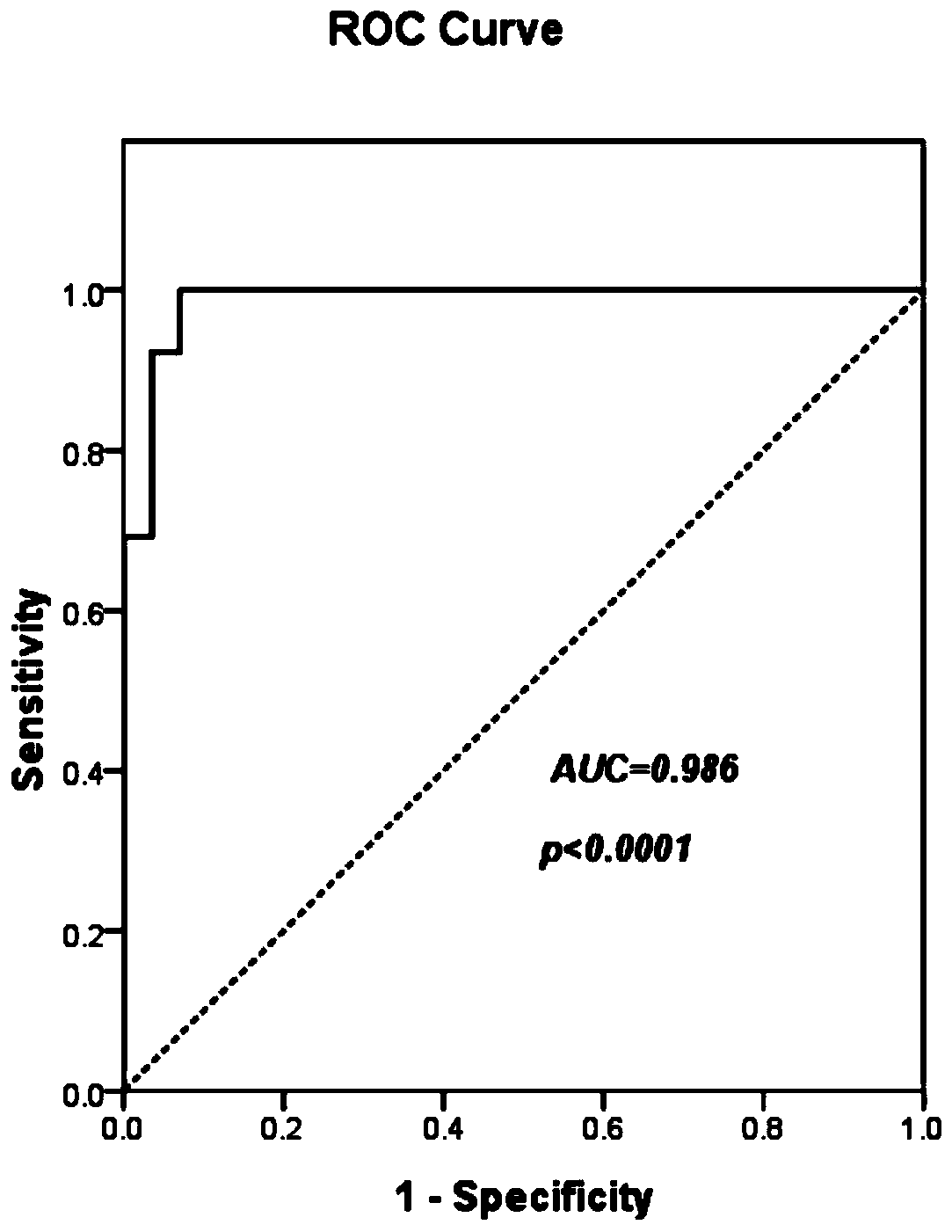Patents
Literature
Hiro is an intelligent assistant for R&D personnel, combined with Patent DNA, to facilitate innovative research.
49results about How to "The enrichment effect is obvious" patented technology
Efficacy Topic
Property
Owner
Technical Advancement
Application Domain
Technology Topic
Technology Field Word
Patent Country/Region
Patent Type
Patent Status
Application Year
Inventor
Agent for phytoremediation of soil polluted by heavy metals using the waste active Sludge as the original material and the method of the phytoremediation of soil polluted by heavy metals
InactiveCN101036917AThe enrichment effect is obviousRealize ecological restorationContaminated soil reclamationActivated sludgePhosphoric acid
Provided is a heavy metal pollution soil repairing agent using excess activated sludge as the rawmaterial, a method of extraction and a method for repairing the heavy metal pollution soil, which relates to a heavy metal pollution soil repairing agent and a method thereof and a method for repairing the heavy metal pollution soil, and solves the problems of high cost, easily secondary pollution and complex operation existing in the repair of the heavy metal pollution soil. The heavy metal pollution soil repairing agent is composed of amylose, protein, nucleic acid, phosphoric acid, amino acid, humic acid compound, uronic acid and the organic substance required for cell lifecycle. The method for distilling the heavy metal pollution soil repairing agent is as follows: the wastewater treatment excess activated sludge reacts under the condition of 80-120 KPa and 60-100 DEG for 8-20 minutes; then centrifuges for 8-20 min at the rotating speed of 5000-7000r / min. The invention adopts the home position repairing or the heterotopia repairing to repair the heavy metal pollution. The invention has low cost and no secondary pollution, simple operation, short repairing period, strong activity and wide range of application.
Owner:HARBIN INST OF TECH
Electrochemical sensor based on chiral covalent organic framework compound
ActiveCN108562627AEasy to prepareImprove conductivityMaterial electrochemical variablesPore diameterChirality
The invention discloses an electrochemical sensor based on a chiral covalent organic framework compound and belongs to the technical field of electrochemical detection. The electrochemical sensor disclosed by the invention is obtained by modifying the covalent organic framework compound COF-CTpPa-2 on a matrix electrode, and can be used for enriching and separating a small molecular electric active substance with a pi conjugated structure; when the molecular diameter of a substance is less than the pore diameter of the COF-CTpPa-2, the enrichment effect of the sensor on the substance is more obvious when the quantity of benzene rings of the substance is more; meanwhile, the electrochemical sensor also can be used for distinguishing and identifying the chiral compound.
Owner:JIANGNAN UNIV
Synergist for lactococcus lactis subsp. lactis capable of generating nisin through fermentation and use method of synergist
ActiveCN105567624AThe enrichment effect is obviousPromote growthBacteriaMicroorganism based processesBiologyNisin
Owner:HUBEI UNIV OF TECH
Method for repairing soil polluted by vanadium and chromium by means of Eleusine indica(L.)Gaertn.
InactiveCN105689378AThe enrichment effect is obviousImprove enrichment effectContaminated soil reclamationSoil scienceGroundwater pollution
The invention discloses a method for repairing vanadium-chromium-contaminated soil by using goosegrass, comprising the following operations: sowing the seeds of goosegrass [Eleusine indica (L.) Gaertn.] in soil polluted by vanadium and chromium, During its growth, it can enrich the vanadium and chromium in the soil, and remove it from the soil as a whole after the growth is mature. Vanadium and chromium in the soil will also be removed. Continuously plant multiple crops of goosegrass in the soil to gradually remove vanadium and chromium that exceed the standard in the soil. Goosegrass uses its extremely developed root system to not only absorb V and Cr in the soil to its roots, and then transfer the heavy metals from the roots to the aboveground parts of the plant through growth, but also effectively reduce the downward migration of heavy metals Risk of groundwater contamination.
Owner:TSINGHUA UNIV
Polymer drug carrier and method for preparing same
ActiveCN105031656APlay a combined effectGood biocompatibilityEnergy modified materialsPharmaceutical non-active ingredientsSide effectBiocompatibility Testing
The invention provides a polymer drug carrier and a method for preparing the same. The polymer drug carrier is provided with a core-shell structure, a core comprises polyethylene glycol-distearoyl phosphoethanolamine nano-micelle, and a shell comprises poly-dopamine. The method includes forming the nano-micelle from polyethylene glycol-distearoyl phosphoethanolamine; forming the poly-dopamine shell on the outside of the nano-micelle to obtain the polymer drug carrier. The polymer drug carrier and the method have the advantages that the core and the shell of the polymer drug carrier comprise biodegradable polymers, accordingly, the polymer drug carrier is good in biocompatibility, and few toxic and side effects can be realized; the particle size of the polymer drug carrier is smaller than 50nm, tumor gathering effects and photo-thermal therapy effects can be realized, and tumor cell killing effects can be realized after near-infrared light irradiates on the polymer drug carrier; drugs can be encapsulated by the nano-micelle of the polymer drug carrier, diversified drugs can be loaded under chemical modification effects of the poly-dopamine, and accordingly the polymer drug carrier has an excellent application prospect in the field of medicine and pharmacology.
Owner:THE NAT CENT FOR NANOSCI & TECH NCNST OF CHINA
Method for remediating cadmium-contaminated soil by using Sweden energy willow No.2
InactiveCN101965785APromote growthHigh annual productivityContaminated soil reclamationHorticultureSoil scienceEnvironment of Albania
The invention discloses a method for remediating cadmium-contaminated soil by using Sweden energy willow No.2, which comprises: cutting one-year-old twigs with a diameter between 1.5 to 2.0 centimeters of Sweden energy willow Salix dascladus by 18 to 20 centimeters, and storing the twigs cut off as cuttingwood in a sand bed; and taking the cuttingwood out before sticking, immersing the cuttingwood in solution of GGR rooting powder, and sticking at a 0.5 to 0.75 meter plant distance and 0.5 to 1 meter row distance, wherein the cuttingwood is inserted into the cadmium-contaminated soil with 3 to 5 centimeters exposed from the ground in sticking, and 3 to 5 years is a growth period. In a cadmium-stressed environment, the Sweden energy willow No.2 growth vigorously, the biomass liveweight can reach 7.4 to 10.9t / hm<2> / year, the soil purification rate can reach 0.3 to 1.2 percent / year, and the annual purification rate is 4 to 7 times that of hyper-herbaceous accumulators.
Owner:NORTHWEST A & F UNIV
Method for strengthening in-situ remediation of polluted water bodies in rivers and lakes by transgenic plants
InactiveCN110386671AThe enrichment effect is obviousFix fixesWater contaminantsPlant peptidesHigh resistanceLandform
The invention relates to a method for strengthening in-situ remediation of polluted water bodies in riverways and lakes by transgenic plants. The method is characterized by comprising the steps that 1, in view of the characteristics of difficulty in the growth of conventional plants in moderately and slightly polluted water bodies, eutrophic elements and heavy metal elements in the water bodies are transferred and fixed into bottom sediment by the transgenic plants with high adsorption efficiency and high resistance; and 2, through micro-topography transformation combing with plant configuration, polluted river sections and lake landform landscape are divided, erosion zones and sedimentary zones are artificially constructed, the initial conditions of transgenic plant growth are guaranteed,and the repair efficiency of the polluted river water bodies is improved. The method has the advantages such as high adaptability and environmental friendliness in strengthening the in-situ remediation of the polluted water bodies in the riverways and lakes, and has wide application prospects.
Owner:INST OF GEOGRAPHICAL SCI & NATURAL RESOURCE RES CAS
Agent for phytoremediation of soil polluted by heavy metals using the waste active Sludge as the original material and the method of the phytoremediation of soil polluted by heavy metals
InactiveCN100534651CThe enrichment effect is obviousRealize ecological restorationContaminated soil reclamationActivated sludgeO-Phosphoric Acid
A heavy metal-polluted soil remediation agent using excess activated sludge as a raw material, an extraction method thereof, and a method for remediating heavy metal-contaminated soil relate to a heavy metal-contaminated soil remediation agent, a preparation method thereof, and a method for remediating heavy metal-contaminated soil. It solves the problems of high cost, easy to cause secondary pollution and complicated operation in the current heavy metal-contaminated soil remediation method. Heavy metal contaminated soil remediation agent is composed of polysaccharide, protein, nucleic acid, phosphoric acid, amino acid, humic acid compound, uronic acid and organic matter required for cell life cycle. The method for extracting the heavy metal-contaminated soil remediation agent is as follows: react the residual activated sludge from wastewater treatment at 80-120kPa and 60-100°C for 8-20 minutes; then centrifuge at a speed of 5000-7000r / min for 8-20 minutes.
Owner:HARBIN INST OF TECH
MnY catalyst for catalytically removing indoor formaldehyde and preparation method thereof
InactiveCN107837819AThe enrichment effect is obviousIncrease chance of contactMolecular sieve catalystsDispersed particle separationMolecular sieveActive component
The invention relates to the field of catalysts, preparation methods and applications thereof, in particular to a MnY catalyst for catalytically removing indoor formaldehyde and a preparation method thereof. The catalyst is composed of a catalyst carrier NaY molecular sieve and an active component Mn. Manganeseacetylacetonate (II) is a manganese source of the active component Mn. The preparation method comprises the following steps: soaking the NaY molecular sieve in an acetone solution of manganeseacetylacetonate (II), and stirring the mixture till an acetone solvent is fully volatilized to obtain a catalyst precursor; and carrying out temperature programming activation in an activated atmosphere, and then cooling the mixture to room temperature and taking the same out to obtain the MnY catalyst. The MnY catalyst prepared by the method removes formaldehyde in indoor air. As Mn oxide active centers which have good catalytic effects in oxidizing and removing formaldehyde are dispersed to the surface of the Y molecular sieve, formaldehyde adsorbed to the surface of the Y molecular sieve is degraded to CO2 and H2O without being affected by adsorption capacity. The method is concise, quick and environment-friendly, and shows a relatively good catalytic performance in catalytic removal of indoor formaldehyde.
Owner:YUNCHENG UNIVERISTY
Preparation method and use method of sandwich type electrochemical immunosensor for detecting prostate specific antigen
ActiveCN111198222AImprove conductivityImprove enrichment effectMaterial electrochemical variablesAntigenPsa antigen
The invention relates to the field of biology, in particular to a preparation method and a use method of a sandwich type electrochemical immunosensor for detecting a prostate specific antigen. A surface of an electrode is sequentially modified with a polydopamine and boron nitride compound (Au (at) PDA (at) BCN) loaded by gold nanoparticles and having good conductivity and a gold platinum nanoparticle modified manganese dioxide covalent organic framework composite material (AuPt nanoparticles modified manganese dioxide covalent organic framework composite material (AuPt nanoparticles modifiedmanganese dioxide covalent organic framework composite material (AuPt) having an excellent enrichment effect on signal molecule methylene blue (MB). The electrochemical signal amplification effect isachieved through the two materials, and the constructed sandwich type electrochemical immunosensor for detecting the prostate specific antigen by using the peptide and the antibody achieves the purpose of accurately and quantitatively detecting the prostate specific antigen.
Owner:YUNNAN UNIV
Method for breeding weak post-acidification streptococcus thermophilus strain
PendingCN113151250AAchieve weakeningIncrease mutation frequencyMutant preparationMicroorganism based processesBiotechnologyLactic acid bacterium
The invention relates to the technical field of mutation breeding of lactic acid bacteria, and provides a method for breeding weak post-acidification streptococcus thermophilus strains. The method comprises the following steps: S1, preparation of a bacterial suspension: culturing an original strain to obtain a bacterial solution, transferring and continuously culturing the bacterial solution to a logarithmic metaphase, centrifuging, washing and concentrating the bacterial solution to obtain the suspension, and placing the suspension in an empty plate for later use; S2, ultraviolet irradiation: placing the suspension under an ultraviolet lamp for irradiation; S3, rejuvenation culture: resuspending the bacteria obtained in S2 in a fresh culture medium for rejuvenation culture; S4, penicillin treatment: adding penicillin for treatment, performing dilution, and coating an MC culture medium with the solution for culture; and S5, screening weak post-acidification strains. According to the technical scheme, the problem that the weak post-acidification streptococcus thermophilus strain cannot be efficiently bred in the prior art is solved.
Owner:河北一然生物科技股份有限公司
Glioma diagnostic marker Circ19:5604583|5604936 and application
InactiveCN107586845AHigh diagnostic valueEasy and accurate diagnosisMicrobiological testing/measurementDNA/RNA fragmentationTrue positive rateHuman cell
The invention belongs to the technical field of biology and discloses a glioma diagnostic marker Circ19:5604583|5604936 and application. In the invention, exosomes secreted by normal human cells are found to have an obvious enrichment effect on the Circ19:5604583|5604936 for the first time; meanwhile, the expression level of the Circ19:5604583|5604936 in serum exosomes of glioma patients is foundto be remarkably reduced compared with that of a control group (p is equal to 0.0134); ROC (Receiver Operating Curve) analysis shows that the Circ19:5604583|5604936 has higher diagnostic value (AUC isequal to 0.928, p is smaller than 0.0001, and the sensitivity and the specificity are 100 percent and 86.2 percent respectively) to glioma. Therefore, early rapid noninvasive screening and auxiliarydiagnosis of the glioma patients can be realized by detecting the expression level of the Circ19:5604583|5604936 in the serum exosomes in people who possibly suffer from the glioma.
Owner:XIANGYA HOSPITAL CENT SOUTH UNIV
Pretreatment method for detecting boron impurities of sodium metasilicate
ActiveCN103411819AThe enrichment effect is obviousAvoid pollutionPreparing sample for investigationPretreatment methodSodium metasilicate
The invention relates to a sodium metasilicate impurity detection pretreatment method, in particular to a pretreatment method for detecting boron impurities of sodium metasilicate, which comprises the following steps: adding sodium metasilicate samples into the NaOH solution for dissolution, adding water and adjusting the pH value, then adding mannitol, enabling the mannitol and the boron impurities of sodium metasilicate to be subjected to complexation fully, performing extraction through diethyl ether, heating the extracted diethyl ether till full volatilization, adding nitric acid into residual liquid and adding water for constant volume, and finally performing detection. The method has the advantages as follows: (1) the gathering function of boron is obvious, and few sodium ions and silicate ions exist in the solution to be detected, so that the influence of the matrix effect is greatly reduced, the recovery of the boron can be improved to more than 95 % from 80-82 %, and the method detection limit of the boron is reduced to 0.2 ppm from 1 ppm; (2), the pollution to the sampling system is avoided; (3), the method is simple and easy to operate, and improves the detection accuracy.
Owner:DALIAN UNIV OF TECH QINGDAO NEW ENERGY MATERIALS TECH RES INST CO LTD
Method for testing zinc ions in water through gelatin enrichment method
InactiveCN106706529AThe enrichment effect is obviousHigh precisionPreparing sample for investigationColor/spectral properties measurementsEnrichment methodsPhysical chemistry
The invention belongs to the technical field of detection and particularly relates to a method for testing zinc ions in water through a gelatin enrichment method. The method includes the following steps that firstly, a zinc chloride sample is weighed and dissolved, and the volume is determined; secondly, a gelatin sample is weighed; thirdly, the solution obtained in the first step is diluted; fourthly, the solution obtained in the third step is heated, and the gelatin sample is slowly added and then stirred till the whole gelatin sample is dissolved; fifthly, the solution obtained in the fourth step is continuously stirred and then cooled to room temperature, and gelatin precipitate is obtained; sixthly, the precipitate obtained in the fifth step is filtered, the filtered precipitate is dissolved in hydrochloric acid, heated and placed at constant temperature till all the zinc ions are replaced to the solution; seventhly, the content of the zinc ions in the enriched zinc solution obtained in the sixth step is detected through a spectrophotometer. Gelatin used in the method is wide in source and low in price. The enrichment function on to-be-detected element zinc is obvious, the method is simple and easy to operate, and the sensitivity and accuracy of detection results are improved.
Owner:DALIAN UNIV OF TECH QINGDAO NEW ENERGY MATERIALS TECH RES INST CO LTD
Novel tag protein for protein enrichment expression and intracellular localization as well as application thereof
ActiveCN110551193AKeep aliveIncrease final yieldPolypeptide with localisation/targeting motifAntibody mimetics/scaffoldsGene expressionOpen reading frame
The invention relates to novel tag protein for protein enrichment expression and intracellular localization as well as application thereof. The tag protein is derived from membrane protein-reflectin A1(RA1) of a squid iridophore. The application of the novel tag protein for protein enrichment expression and intracellular localization comprises the following steps: (a) providing a construction object, wherein in an open reading frame of a gene expression vector, the construction object, from 5' to 3' segments, sequentially comprises the following operable connecting components: an encoding geneof eGFP and an encoding gene of the RA1; (b) transferring the construction object in (a) into a host cell so as to express eGFP and RA1 tags; (c) providing a group of recombinant protein formed by the eGFP and RA1 tags, wherein the recombinant protein contains functional areas of the eGFP and the RA1, and the eGFP exerts under the action of the RA1 functional area; and (d) performing intracellular enrichment and spatial orientation to be favorable for the subsequent separation and purification.
Owner:NAT UNIV OF DEFENSE TECH
Superhydrophilic microwell sensing interface for enrichment and trace detection and its preparation method
ActiveCN104174445BGood concentration and enrichment effectRestore superhydrophilicityLaboratory glasswaresColor/spectral properties measurementsGas phaseUltraviolet lights
The invention relates to a super-hydrophilic micro-well sensing interface for enrichment and trace detection and a preparation method of the super-hydrophilic micro-well sensing interface. The method comprises the following steps: repeatedly translating a clean substrate above candle flame at constant speed, carrying out physical deposition on the surface of the substrate to obtain uniformly-distributed carbon nanolayers with a certain thickness, carrying out chemical vapor deposition on silicon dioxide by taking the substrate as a template, and thus obtaining a nano-composite structure with carbon particles being coated by the silicon dioxide; calcining at high temperature to remove carbon cores, and thus obtaining a uniform hollow nano silicon dioxide layer with a micron thickness; after treating the surface of nano silicon dioxide by a plasma, modifying a silanization reagent on the surface by adopting a monomolecular-film self-assembly method; covering a circular photomask plate, and carrying out ultraviolet light degradation on the silanization reagent in the uncovered area by adopting a photoetching technique to obtain the super-hydrophilic micro-well sensing interface for enrichment and trace detection. By utilizing the advantage of a controllable patterning designated limited range, a super-hydrophilic micro-well has good concentration and enrichment effects on micro droplets of an extremely dilute solution and can be used for real-time trace detection of target molecules.
Owner:UNIV OF SCI & TECH BEIJING
Method for detecting sulfur content in raw coal
InactiveCN106198431AThe enrichment effect is obviousWeaken spectral interferenceMaterial analysis by observing effect on chemical indicatorColor/spectral properties measurementsCombustionCoal chemical industry
The invention belongs to the technical field of coal chemical industries, and particularly relates to method for detecting sulfur content in raw coal. The method includes the steps: preparing PRA (pararosaniline) solution, formaldehyde absorption solution and sulfur dioxide standard solution; (2) absorbing raw coal combustion exhaust gas by excessive formaldehyde absorption solution through a pipeline, and enriching sulfur dioxide in the formaldehyde solution; (3) taking the enriched formaldehyde solution, adding the PRA solution into the formaldehyde solution, and guttatim adding sodium hydroxide solution into the formaldehyde solution until a purple red compound does not increase; (4) detecting solution displaying purple red by an ultraviolet spectrophotometer, comparing with a standard curve, and calculating sulfur content; (5) converting final sulfur content according to the proportion of the total volume of the formaldehyde solution to the volume of formaldehyde absorbing solution. The method is simple and easy to operate, and accuracy and sensitivity of a detecting result are improved.
Owner:DALIAN UNIV OF TECH QINGDAO NEW ENERGY MATERIALS TECH RES INST CO LTD
Metallothionein gene MT20, encoded metallothionein thereof and expression and application of gene
ActiveCN109943571AImprove toleranceThe enrichment effect is obviousBacteriaWater contaminantsMicroorganismCadmium Metal
The invention discloses a metallothionein gene MT20. The base sequence of the metallothionein gene is shown as SEQ ID NO:1, the metallothionein gene is derived from soil microorganisms, is high in heavy metal tolerance and can still survive and grow in a cadmium solution with the concentration of 1.0 M. Moreover, the metallothionein gene has an obvious cadmium metal enrichment effect, so the metallothionein gene has a great application potential in industries such as heavy metal pollution control.
Owner:中国科学院遗传与发育生物学研究所农业资源研究中心
Method for restoring cadmium polluted soil by Thalia dealbata
InactiveCN104128362AWell developed root systemLarge biomassContaminated soil reclamationHigh concentrationBud
The invention relates to the technical field of ecological restoration of cadmium polluted soil, and concretely relates to a method for restoring cadmium polluted soil by Thalia dealbata. Researches find that Thalia dealbata can normally grow in high concentration cadmium environment, the biomass of the Thalia dealbata does not obviously decrease, the heavy metal content of the aboveground part of the Thalia dealbata is higher than the heavy metal content of the root part of the Thalia dealbata, and Thalia dealbata can adsorb cadmium in soil. Thalia dealbata is planted in the heavy metal cadmium polluted soil, so when Thalia dealbata plants are mature, the aboveground parts of the plants (a certain height of the basal parts of the plants are reserved) are cut, harvested and removed from the polluted soil; and after the base parts or the underground parts of the plants have new buds and the new buds gradually grow to form new mature plants, the above processes are repeated in order to reduce the pollutant cadmium in soil.
Owner:SOUTH CHINA AGRI UNIV
Manganese-loaded plant-based biochar and preparation method and application thereof
ActiveCN111659348AEasy to prepareNo pollutionOther chemical processesWater contaminantsManganesePlant growth
The invention discloses manganese-loaded plant-based biochar and a preparation method and application thereof. The loading capacity of Mn in the plant-based biochar is 25-30mg / g. The preparation method comprises the following steps: cultivating hyperaccumulators, and irrigating the hyperaccumulators with a manganese ion-containing solution in the growth process of the hyperaccumulators; harvestingmature plants, cleaning and drying; and crushing the dried plants, sieving with a 60-mesh sieve, and calcining at 480-550 DEG C for 1-4 hours to obtain the manganese-loaded plant-based biochar. The plant-based biochar can be used for adsorbing and curing heavy metal ions, and can be used for treating the environment polluted by heavy metals. The high-manganese-loaded plant-based charcoal is obtained through plant cultivation and calcination, exogenous loading treatment is not needed, the preparation process of the charcoal is simpler and more convenient, the risk of secondary pollution is reduced, and the charcoal is suitable for large-scale application and popularization.
Owner:INST OF SOIL SCI CHINESE ACAD OF SCI
Preparation and application method of a sandwich-type electrochemical immunosensor for detecting prostate-specific antigen
ActiveCN111198222BImprove conductivityImprove enrichment effectMaterial electrochemical variablesAntigenPsa antigen
Owner:YUNNAN UNIV
Feed capable of promoting immunity of crayfish
InactiveCN108936075AImprove immunityReduce mortalityFood processingClimate change adaptationCarexSide effect
The invention relates to the field of feed, and particularly relates to feed capable of promoting immunity of crayfish. The feed capable of promoting the immunity of the crayfish is prepared from thefollowing raw materials in parts by weight:35 parts to 56 parts of rice bran, 13 parts to 25 parts of straw powder, 15 parts to 25 parts of bone meal, 10 parts to 16 parts of fish meal, 5 parts to 12parts of carex truncatigluma, 1 part to 8 parts of microalgae, 2 parts to 7 parts of biological preparation and 4 parts to 10 parts of Chinese medicine preparation. The feed capable of promoting the immunity of the crayfish has the advantages of comprehensive and rich nutrition, low production cost, high security and no toxic and side effects; and moreover, total nutrient substances required for growth of the crayfish can be provided, the immunity of the crayfish can be effectively improved after the feed is fed for a long time, and heavy metal residues in crayfish bodies are reduced.
Owner:安徽联邦农业科技有限公司
Method for analyzing sweet component in smoke in oral saliva of smoker
PendingCN114518421AEasy pre-treatmentImprove enrichment capacityComponent separationBiotechnologyGas liquid chromatographic
The invention provides a method for analyzing sweet components in smoke in saliva in the oral cavity of a smoker, which comprises the following steps: heating and balancing the saliva obtained after the smoker smokes a cigarette, inserting an extraction rod into the saliva for oscillating, heating and extracting, taking out the extraction rod for thermal desorption, and measuring by adopting gas chromatography-mass spectrometry. Therefore, the content of the sweet component in the smoke in the saliva is determined. According to the analysis method for the smoke sweet component in the oral saliva of the smoker, comprehensive analysis on the trace smoke sweet component in a saliva complex matrix can be achieved, no organic reagent needs to be used in the detection process, and the method is non-toxic, safe, environmentally friendly, low in detection cost and good in popularization and application.
Owner:SHANGHAI TOBACCO GRP CO LTD
A kind of MNY catalyst for indoor formaldehyde catalytic removal and preparation method thereof
InactiveCN107837819BThe enrichment effect is obviousIncrease chance of contactMolecular sieve catalystsDispersed particle separationMolecular sievePtru catalyst
The invention relates to catalysts, preparation methods and application fields, in particular to a MnY catalyst used for catalytic removal of formaldehyde in indoor air and a preparation method thereof. The catalyst is composed of a catalyst carrier NaY molecular sieve and an active component Mn, and the active component Mn uses manganese (II) acetylacetonate as a manganese source. The preparation method is as follows: immerse NaY molecular sieve in the acetone solution containing manganese (II) acetylacetonate, stir until the acetone solvent is completely volatilized to obtain the catalyst precursor; perform temperature program activation in the activation atmosphere, then cool to room temperature and take it out to obtain MnY catalyst. The MnY catalyst prepared by this method is used for the removal of formaldehyde in indoor air. Since the surface of the Y molecular sieve is dispersed with Mn oxide active centers that have a good catalytic effect on the oxidation and removal of formaldehyde, the formaldehyde adsorbed on the surface of the Y molecular sieve can be catalytically degraded into CO. 2 and H 2 O, and is not affected by the adsorption capacity. The method is simple, fast, and environmentally friendly, and shows good catalytic performance in indoor catalytic removal of formaldehyde.
Owner:YUNCHENG UNIVERISTY
Titanate nanotube SPME coating and preparation method and application thereof
InactiveCN110327897AImprove thermal stabilityLarge specific surface areaOther chemical processesComponent separationFiberSolid-phase microextraction
The invention discloses a titanate nanotube SPME coating and a preparation method and application thereof. The coating comprises a titanate nanotube layer attached to solid-phase microextraction fiber. The preparation method comprises the following steps: taking pretreated solid-phase microextraction fiber, coating the surface of the solid-phase microextraction fiber with polyimide resin, adding titanate nanotubes to the polyimide resin, and aging to prepare the titanate nanotube SPME coating. The titanate nanotube SPME coating can be directly used for PAHs analysis in natural water bodies, has a wider linear range and a lower detection limit for a plurality of PAHs, and simultaneously has a good enrichment effect on the plurality of PAHs.
Owner:GUILIN UNIVERSITY OF TECHNOLOGY
Method for analyzing aroma components in tobacco
PendingCN113777201AThe enrichment effect is obviousIncrease the concentration factorComponent separationProcess engineeringMass spectrometry
The invention provides a method for analyzing aroma components in tobacco, which comprises the following steps: continuously heating a tobacco sample to be detected, enriching the aroma components in the tobacco by adopting a closed loop gas stripping method, performing thermal desorption, and performing qualitative and quantitative analysis by adopting a gas chromatograph-mass spectrometer. According to the method, the problem that the adsorption effect of the adsorbent becomes poor in the enrichment process can be effectively avoided, the method also has a good adsorption effect on the to-be-detected tobacco sample with the high moisture content, and the test of the aroma components in the tobacco is more accurate and effective.
Owner:SHANGHAI TOBACCO GRP CO LTD
Pretreatment method for detecting boron impurities of titanium dioxide
InactiveCN103411808BThe enrichment effect is obviousAvoid pollutionPreparing sample for investigationPretreatment methodPropanediol
The invention relates to a pretreatment method for detecting boron impurities of slagging constituent, in particular to a pretreatment method for detecting boron impurities of titanium dioxide, which comprises the following steps: adding nitric acid and hydrofluoric acid into titanium dioxide so as to enable titanium dioxide to be dissolved, adding propylene glycol to be subjected to complexation with boron after diluting acidity through adding water, performing oscillation and standing, extracting boron complex by adopting normal hexane, then performing standing stratification, heating the normal hexane phase of the upper layer till full volatilization, adding nitric acid into the residue, then adding water for dilution, and finally performing detection after constant volume. The method has the advantages as follows: the gathering function of boron is obvious, few titanium ions exist in the solution to be detected, the influence of the matrix effect is greatly reduced, and the extraction yield is greater than 90%; the recovery of the boron can be improved to more than 95% from 80-82%, and the method detection limit of the boron is reduced to 0.5 ppm from 2 ppm; in addition, the pollution to the sampling system of an apparatus is avoided, and the method is simple and easy to operate, and improves the detection accuracy.
Owner:QINGDAO XINSHIJI SOLAR ENERGY TECH CO LTD
Metallothionein gene MT18, metallothionein encoded by metallothionein gene MT18, and expression and application thereof
ActiveCN109851670AGood resistance to heavy metalsThe enrichment effect is obviousBacteriaWater contaminantsBase sequenceAgricultural science
The invention discloses a metallothionein gene MT18. The metallothionein gene MT18 has a base sequence shown as SEQ ID NO: 1, and derives from soil microorganisms; and the metallothionein gene MT18 isgood in heavy metal tolerance, and can survive and grow even in a cadmium solution of which the cadmium concentration is 1.0M. Moreover, the metallothionein gene MT18 has obvious cadmium metal enrichment effects; and thus, the metallothionein gene MT18 has relatively great application potential in heavy metal pollution control and other industries.
Owner:中国科学院遗传与发育生物学研究所农业资源研究中心
A kind of polymer drug carrier and preparation method thereof
ActiveCN105031656BHas photothermal therapeutic effectWith photothermal effectEnergy modified materialsPharmaceutical non-active ingredientsSide effectBiocompatibility Testing
The invention provides a polymer drug carrier and a method for preparing the same. The polymer drug carrier is provided with a core-shell structure, a core comprises polyethylene glycol-distearoyl phosphoethanolamine nano-micelle, and a shell comprises poly-dopamine. The method includes forming the nano-micelle from polyethylene glycol-distearoyl phosphoethanolamine; forming the poly-dopamine shell on the outside of the nano-micelle to obtain the polymer drug carrier. The polymer drug carrier and the method have the advantages that the core and the shell of the polymer drug carrier comprise biodegradable polymers, accordingly, the polymer drug carrier is good in biocompatibility, and few toxic and side effects can be realized; the particle size of the polymer drug carrier is smaller than 50nm, tumor gathering effects and photo-thermal therapy effects can be realized, and tumor cell killing effects can be realized after near-infrared light irradiates on the polymer drug carrier; drugs can be encapsulated by the nano-micelle of the polymer drug carrier, diversified drugs can be loaded under chemical modification effects of the poly-dopamine, and accordingly the polymer drug carrier has an excellent application prospect in the field of medicine and pharmacology.
Owner:THE NAT CENT FOR NANOSCI & TECH NCNST OF CHINA
Glioma diagnostic marker circ6:22020339|22020542 and its application
ActiveCN107557471BHigh diagnostic valueEasy and accurate diagnosisMicrobiological testing/measurementExosomeOncology
The invention discloses a glioma diagnostic marker Circ6: 22020339|22020542 and an application. According to the invention, it is first found that an exosome secreted by glioma cells has an obvious enrichment effect on Circ6: 22020339|22020542, and the expression level of Circ6: 22020339|22020542 in the serum exosome of a patient who suffers from glioma is obviously reduced (p<0.0001) than that ofa control group. ROC curve analysis shows that the marker has relatively high diagnostic value (AUC=0.986, p<0.0001, the susceptibility is 100%, and the specificity is 92.9%) on glioma. Therefore, through detection of the expression level of Circ6: 22020339|22020542 in the serum exosome of a patient who suffers from glioma, noninvasive diagnosis can be early fast made to the patient who suffers from glioma.
Owner:XIANGYA HOSPITAL CENT SOUTH UNIV
Features
- R&D
- Intellectual Property
- Life Sciences
- Materials
- Tech Scout
Why Patsnap Eureka
- Unparalleled Data Quality
- Higher Quality Content
- 60% Fewer Hallucinations
Social media
Patsnap Eureka Blog
Learn More Browse by: Latest US Patents, China's latest patents, Technical Efficacy Thesaurus, Application Domain, Technology Topic, Popular Technical Reports.
© 2025 PatSnap. All rights reserved.Legal|Privacy policy|Modern Slavery Act Transparency Statement|Sitemap|About US| Contact US: help@patsnap.com
